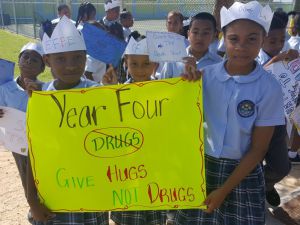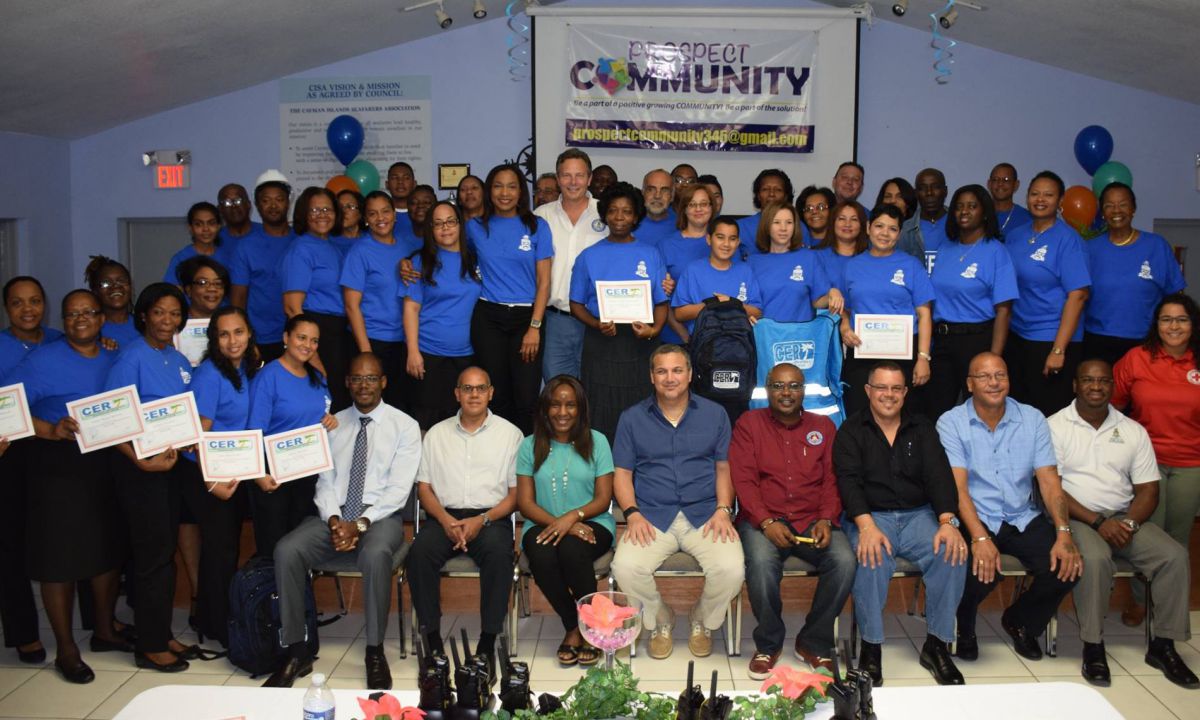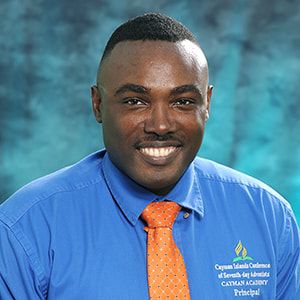(CNS Local Life): More than 1,300 students in Cayman took part in the second annual anti-drug march, organised for the International Day Against Drug Abuse and Illicit Trafficking. The United Nations Office on Drugs and Crime continues to lead the global campaign to raise awareness about the major challenge that illicit drugs represent to society as a whole, and especially to the young.
Cayman joined the global community in commemorating the day through hosting island-wide marches leading up to and on 26 June.
This year’s theme was “Listen First: Listening to children and youth is the first step to help them grow healthy and safe, reducing risk behaviors and drug use”. The goal of the campaign is to mobilise support and inspire people to act against drug use by raising global awareness.
This goal sparked the efforts of a group of John Gray High School students last year. A student-elected committee, along with the life skills department, organised the first anti-drug march, incorporating the art, music and media departments.
“The School-Based Drug Education programme is offered through the school’s life skills course and in 2016 a group of year 10 and 11 students were inspired to bring awareness to the campaign through a whole school march,” said Simon Miller, prevention specialist with the National Drug Council (NDC).
The expansion of this year’s event meant that five high schools and eight primary schools participated. “Last year’s march was extremely successful so naturally we extended the offer for all high schools to participate in the second annual drug march and mini conference, and would support any primary school who also wished to participate,” said Brenda Watson, NDC programme manager.
Some of the positive outcomes of taking part in prevention programmes and campaigns include better school performance, less risky social behaviours, less substance abuse and less violent behaviour.
The NDC, along with Community Footprints programme of The Ritz-Carlton and Marriott hotels, other non-profit organisations, government, the private sector and volunteers, became involved in the second annual anti-drug march through:
- School-based drug-prevention sessions and assemblies focusing on the theme
- Involving students in varying activities that allowed for the students to create banners, flags, posters and crowns that depict meaningful and impactful messages
- An island-wide student-led anti-drug march
- Mini-conference encompassing presentations on the impact of drugs
According to the 2016 Cayman Islands Student Drug Use Survey conducted among grades 7-12, about 75% of students indicated that their parents have talked to them about the importance of not using drugs and alcohol. The results also showed that of the students who choose not to use alcohol and drugs they identified their parents as having the most influence in their decision to remain drug free.
“We have to acknowledge the significant and influential role that our parents have in helping their children grow happy and learn to cope well in difficult life situations,” said Dr Susan Young, NDC prevention and information officer.
Spending just a small amount of time each day by giving your child your undivided attention through talking about the importance of avoiding alcohol and drugs as well as asking questions and listening attentively are some first steps, the NDC said.
The council runs a “Parents as Preventers” programme designed and aimed at helping parents to recognise and understand the effectiveness of active listening, talking and setting clear rules and reasonable consequences. The free sessions are available to parents of children of varying ages and can be run through the NDC offices or school PTAs.
For more information, call (949-9000) or email the NDC or go to its website





